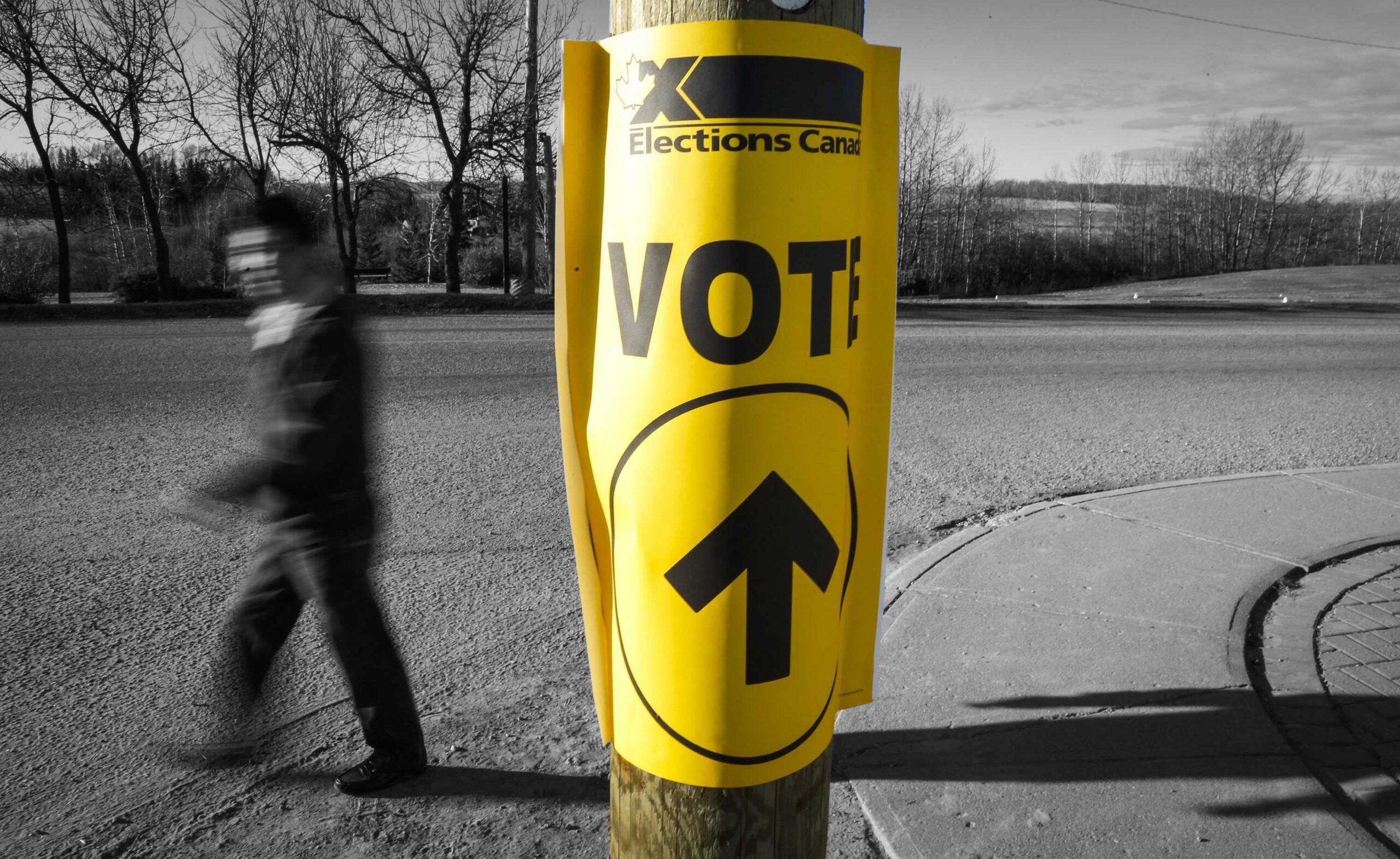Chris Cochrane felt drained—financially and emotionally—after legally changing her name and sex marker earlier this year. The process varies from province to province and can involve steps such as separate applications for name and sex marker changes, background checks and procuring letters from a notary or sometimes even a medical professional—each of which may come with their own fees. In some cases, fees for a legal name change can run as high as $165 dollars and can take several months to complete.
“You have to pay $50 just to get your fingerprints done,” Cochrane recalls. “Being a Black trans woman, getting my prints done by the police isn’t really the most gentle thing to be doing.” The process was further drawn out when Service Nova Scotia lost her new ID before she was able to collect it, but Cochrane eventually received identification with the correct name and marker in April.
So when the 34-year-old Haligonian retrieved her voter card from the mail this month, she was upset to find it included her deadname (the name someone used before their transition). On top of updating her identification, she had gone through the process of registering to vote online with her correct name and expected to see that reflected on official government documents.
“I’m not usually someone who freaks out about these things,” she says. “But I’d had such a rough experience changing my name. I was just done.”
Cochrane called Elections Canada, where a representative instructed her to try to fix the error online. If that didn’t work, she was told she’d have to address the issue in person. A new card arrived with the correct name soon after she requested a change online. But Cochrane still feels angry.
“It’s demeaning,” she says. “When you transition, you have to go through so much physically and mentally. And then to get [deadnamed]… it’s kind of like everything you’ve done means nothing.”
“It reminds people of a past they’re trying to leave behind.”
Cochrane isn’t alone in her experience. Xtra has spoken to more than a dozen trans people from across the country who received voter cards addressed to their deadnames. All of them had previously legally updated their IDs. In some cases, trans folks who had legally changed their names and markers nearly a decade prior received faulty documents from Elections Canada.
Damen Lapointe is one of them. The Dartmouth, N.S., resident updated his name and gender marker back in 2007. The following year, he registered to vote using his correct name. In the 2011 election, he received two cards—one with his deadname and one that was accurate. In the following election four years later, he finally received a card that included the right name. Nonetheless, a single 2019 voter card arrived bearing his deadname—which he found unsettling.
“It reminds people of a past they’re trying to leave behind,” he says. “It was awkward enough changing my name at the voter registry the first time. Making people go through that over and over again… It’s discouraging a minority from voting.”
Cochrane worries trans folks will be further deterred from voting if they’re forced to update their paperwork in person. The prospect of walking into an office likely staffed with predominantly cisgender employees and having to out oneself can be difficult. “We have to come out again and again. When we get prescriptions, when we get our name changed,” Cochrane says. “If I’m going through all this, then why isn’t the government doing its job?”
“Most sources were able to fix their voter cards fairly easily, but many felt dismissed when they reported errors to Elections Canada employees.”
In an email to Xtra, Elections Canada representative Ghislain Desjardins explained that the organization pulls from different data sources to update their National Register of Electors, including driver’s licence bureaus, the Canada Revenue Agency and voter lists from other jurisdictions. Because the Register contains nearly 27 million names, and about 14 percent of the information changes annually, she wrote, it’s not unusual for Elections Canada to experience a delay in obtaining updated records.
Still, Desjardins acknowledged the organization had received complaints this election cycle. “We have been made aware of a few cases where a person has signalled to us that they had made a name change, but unfortunately the change was not reflected in the National Register of Electors,” wrote Desjardins. “Elections Canada is taking the situation very seriously and looking into what may have caused this issue.”
While most sources say they were able to fix their voter cards fairly easily, others felt further dismissed when they reported errors to Elections Canada employees.
Thomas Steel was mailed two voter cards this year, one with his deadname and one with the correct information. “I called Elections Canada to let them know, and the agent asked for my name. When I told her, she said, ‘You don’t sound like a Thomas,’” Steel says.
Steel eventually asked to speak with a manager, but the representative refused to forward his call. He submitted a formal complaint to Elections Canada and received a call from them the following day. “They apologized for the computer glitch… but not for what the agent said to me,” Steel says. “I figured that was as good as I was going to get.”
For Cochrane, these errors are an indicator that politicians aren’t paying close enough attention to trans constituents. Plenty of LGBTQ2 people already have trouble trusting that the government has their best interests at heart, she says.
“To say, ‘We want you to vote,’ but then you can’t even get our damn names right… how are we supposed to trust you with everything else?”


 Why you can trust Xtra
Why you can trust Xtra


